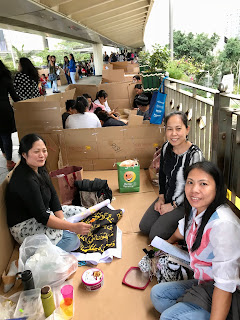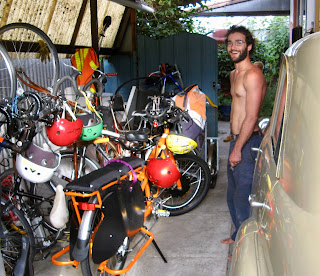Funeral for our future. Stop Adani Melbourne
 |
| Click image for greater clarity |
It's time to send a strong message to our politicians - our future is in serious jeopardy due to their inaction on climate change. On the #StopAdani National Day of Action, wear black and join us in mourning what we may lose, and demand our politicians take action: they must publicly commit to stopping the Adani coal mine and transitioning away from fossil fuels in order to save our reefs, our farmers, our home, our future.
The funeral had everything!
There was a casket, surrounded by carefully arranged displays highlighting the inmate's characteristics.
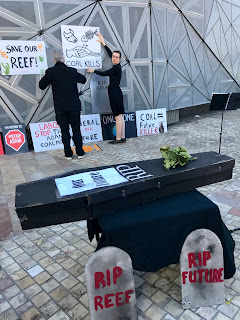 |
| Click image for greater clarity |
There was a celebrant, who was all too aware of the corpse's power for evil. Yet she still encouraged us to persist and to hold on to hope for the future.
 |
| Click image for greater clarity |
Of course there was a sympathy card. But in a week when the West Australian government has opened the gates to fracking and Adani has announced he will use his corporate billions to build his coal mine (even as catastrophic fires decimate Queensland), it was the guests who needed sympathy at this funeral.
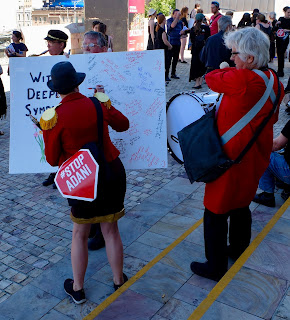 |
| Click image for greater clarity |
There were forlorn mourners.
 |
| Click image for greater clarity |
And those who are determined to point the finger directly at a principle culprit for a harrowing future scenario.
 |
| Click image for greater clarity |
As is appropriate at a religious service, some people came with their entreaties.
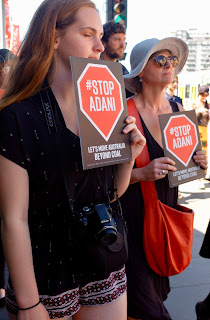 |
| Click image for greater clarity |
 |
| Click image for greater clarity |
Others knew exactly where to address those requests. And given Victorian Labor's recent massive electoral victory, plus the fact that an early action of the original Andrew's Government was to dump the dreaded East-West Link and then make Victoria fracking free, we can only hope they will soon step up and oppose Adani before it is too late. The electoral result should surely embolden them.
 |
| Click image for greater clarity |
The service had its ritual: a march around the CBD, featuring pallbearers who carried their weighty burden with dignity.
 |
| Click image for greater clarity |
In true New Orleans fashion, the great Riff Raff Marching Band celebrated the corpse's passing and trumpeted all our hopes for a fossil free future.
 |
| Click image for greater clarity |






